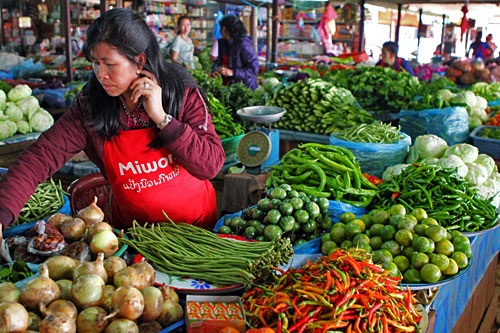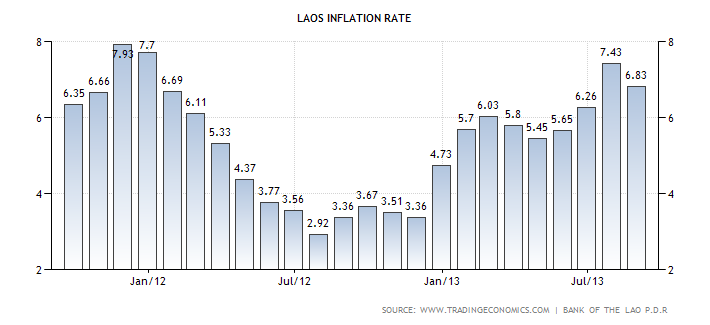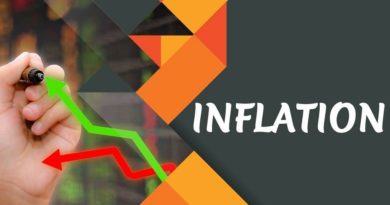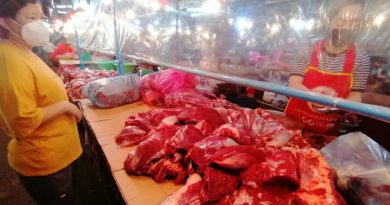Inflation Inches Higher
The inflation rate is trending higher each year despite the government’s mitigating measures, driving up living costs for ordinary people.
Inflation reached 6.87 percent last month, up from 6.83 percent in August, according to a report issued by the Lao Statistics Bureau this week.
Economists say inflation could exceed the economic growth rate of 8 percent in the near future because Laos imports more than it exports.
If inflation exceeds the rate of economic growth, the end result would be zero growth.
The rise in the September inflation rate was mainly driven by price increases in the categories of food and non-alcoholic beverages; clothing and footwear; alcohol and tobacco; housing, water, electricity and cooking gas; education; and restaurants and hotels.
Prices in the alcohol and tobacco category increased by 1.71 percent month-on-month, while the clothing and footwear category saw an increase of 1.08 percent. Prices in the education category rose by 1.07 percent, while those in the restaurant and hotel category increased by 1.32 percent.
The country’s highest inflation rate this year was 7.43 percent in July, while the lowest rate was 5.45 percent in April. In 2011, the average inflation rate was 7.58 percent but dropped to 4.26 percent last year.
Laos has one of the highest inflation rates of all Asean countries due to the rising value of imports.
A government report states that in the past six months of the 2012-13 fiscal year the value of exports reached US$880 million while the value of imports exceeded US$1.16 billion.
The main items imported were vehicles and spare parts, industrial products, fuel and gas, construction equipment, and food products.
Government spokesperson Ms Bounpheng Mounphosay told local media recently the government was concerned about the country’s rising inflation and debt as it could lead Laos into economic crisis.
A revenue shortfall has also affected various projects in the country and the International Monetary Fund (IMF) has warned that Laos must take steps to avoid a financial crisis.
The revenue shortfall has forced the government to rein in expenditure, including halting a 760,000 kip monthly living allowance for state employees and encouraging thrift.
Critics say the government needs to impose concrete measures to curb inflation, notably the regulation of food prices which are considered the main driver of inflation.
It is seen as essential to boost domestic production for in-country consumption and for export, as this would earn foreign currency while reducing imports.
Another problem is that Laos relies on the export of natural resources such as mining products, which is considered unstable. Natural resources do not constitute a sound economic base because they will one day be depleted.
Source: Vientiane Times





